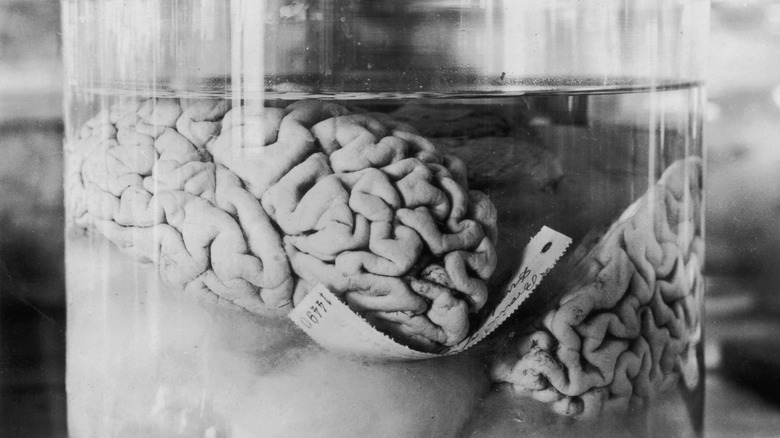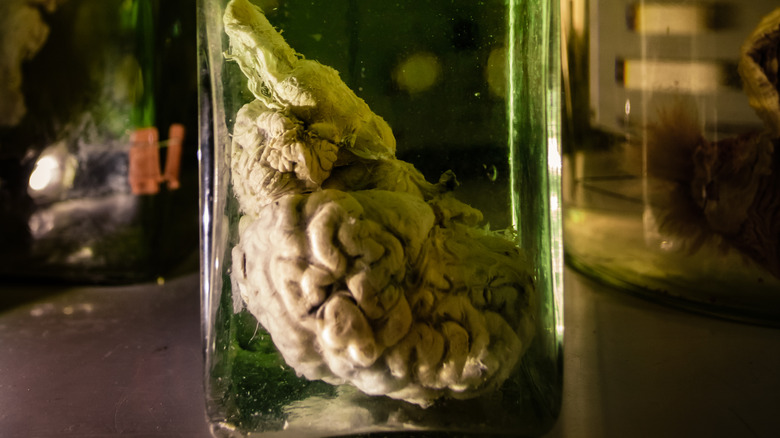Here's How Human Brains Were Once Used As Medicine
Modern-day doctors are known for their brains, which they use to complete many years of medical school. But in the past, doctors and brains had a completely different relationship — one that conjures all sorts of Frankenstein-esque imagery. Believe it or not, brains — human brains to be exact — were once a vital organ used in medicinal administration (via Mental Floss).
Alas, if you were a patient in the 1650s, and you suffered the plight of epilepsy, you might have been subject to "medical cannibalism," which is every bit as awful as it sounds (via "Quackery: A Brief History of the Worst Ways to Cure Everything"). Medical cannibalism was derived from a theory known as "like cures like," which suggests that injuries of the brain and skull should be cured with — you guessed it — brains and skulls. This practice quickly morphed into curio cabinets filled with powdered skulls and ginger root and prescriptions for the consumption of human brains.
Some prescriptions required brains from people who died violently
As if chowing down on gushy gray and white matter isn't morbid enough, ancient holistic doctors had a particular affinity for brains belonging to people who died violently. One especially gruesome prescription initially published in the Art of Distillation by Physician John French and later reprinted in "Quackery: A Brief History of the Worst Ways to Cure Everything" called for brains, arteries, and veins of a man who died a violent death. These components were to be ground up into horse feces, distilled, and fed to the epileptic patient. The brain used would have to first be extracted from a suitable corpse following a volatile demise. After which, it would be dissected, mashed, and digested (via Mental Floss).
Based upon this description, it seems that medieval surgeons were just plain evil surgeons. Who would have thought that the road to modern medicine was paved in such a cryptic past of violence, grave robbing, skull collecting, and other unspeakable oddities?

